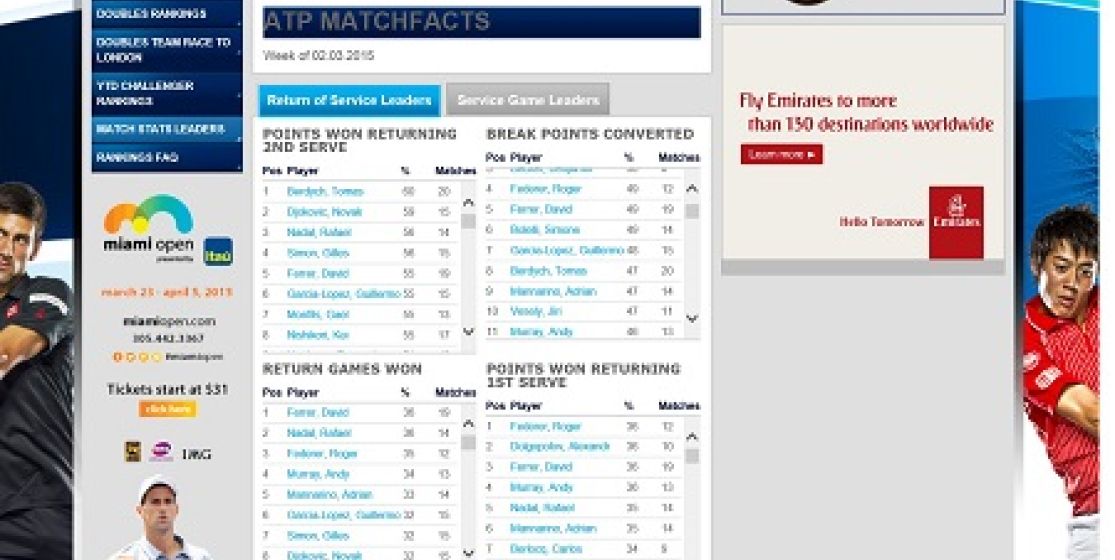Do you want to see tennis stories jammed with statistics? Would you want to read more about what happened in a match which in turn works on bringing out a player’s personality? These are questions that got me to thinking after seeing a short article in the publication Forbes suggesting that tennis lags way behind other sports when it comes to statistics.
American’s love stats and Forbes being an American publication only highlights that view. The type of football they play or their so-called World Series of baseball (still cannot figure out something can be a “world series” when it’s only with teams in the USA – yes OK Canada as well but that’s the 51st state anyway).
As for the boredom of American football, it needs the stats – a match is probably two hours of which a total of 45 minutes is the actual match, the rest is stop, start and talk.
Those are team sports which in most cases lends themselves to stats. Tennis is an individual sport where the personalities should be coming to the fore.
Filling up a story with statistics is a lazy way to get the picture across. I am not for one minute suggesting that stats be taken out of the tennis equation but to constantly see numbers across TV graphics or on pages becomes boring and painful. It is an American thing these stats. Why should all sports bend to the way the American media generally want something?
There is enough hoo-ha from the international tennis media that they don’t get enough time with the players in an effort to bring out their personal traits much more; stats only continue to make things sound more frigid when writing and/or commentating about tennis.
The article in Forbes makes these three points
1. Tournaments: Tennis is a fragmented, decentralized landscape. Sure, there are the ATP and WTA with some degree of power over tournaments, but most events are very autonomous, and it’s difficult to align a uniform data tracking system when directors are most interested in maximizing their sponsorship deals with Rolex and Lexus. Many tournaments supply only physical paper stats PDFs to journalists, who then have to arduously transcribe the data back into their own computers for analysis. My view: You don’t have the sponsors you don’t have the events and then you certainly won’t have the precious stats, and so what if the information is on paper
2. Players: Individual sports are not as incentivized to gather analytics, as there’s no team-constructing component to the game. There’s no need to isolate individual contributions in tennis, since we can already tell just how much a player contributed to his or her success. My view: Correct and that point is lost here – in team sports it is very difficult to talk about a dozen individuals so stats fill the gap; individual sports help allow media to bring out the individual
3. Sport: Given the lack of parity in men’s tennis, the public demand for analytics may not be too great, as even the most comprehensive data will be unlikely to turn the likes of John Isner or Gilles Simon into a regular title contender. My view: What has parity got to do with it? No two football teams, as an example, are equal either. When Isner plays one is curious about the number of aces, nothing else.
Let’s not keep comparing tennis to other sports. Tennis is a great sport and stands on its own. Absolutely some statistics can be very relevant and interesting but for goodness sake let’s also not get carried away with it all and work to preserve the life and personality of the sport.






